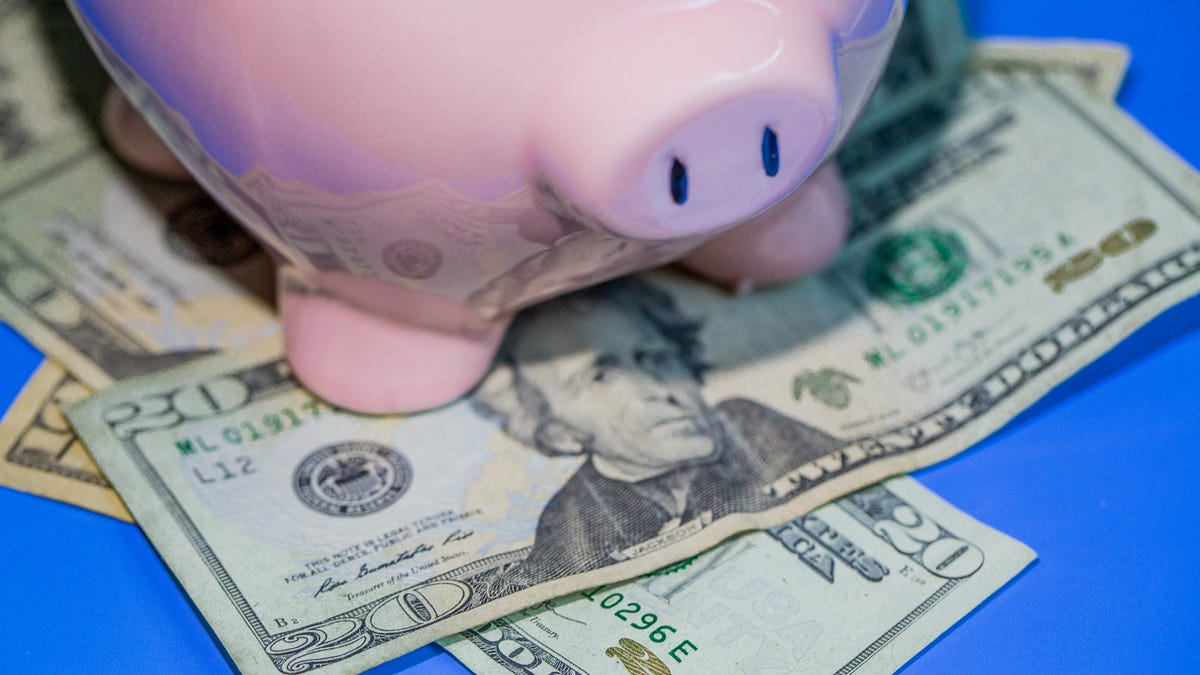Coronavirus lockdowns: 5 ways to save money before you receive a stimulus check
At this difficult time, making a few changes at home can save you some bucks.

Being careful with money is important during this tough period.
People across the US are spending a lot more time at home amid lockdowns and shelter-in-place orders meant to help slow the spread of the coronavirus. And this could be a good time to save some money. Preserving a few bucks now could be helpful as folks wait for the stimulus checks that the Treasury Department has already started sending out.
Here are five ways to save some greenies as you work from home or otherwise stay indoors during the COVID-19 crisis.
1. Lower your auto premium
When an auto insurance company calculates your premium, one of the factors it considers is how much you'll be driving the car. This is why the company may ask how long your commute is. The longer the commute, the higher the risk of the accident -- and thus the higher your premium. If you're working from home, there isn't a commute.
"When the car isn't being driven, there's hardly any risk," said Dan Karr, insurance industry watchdog and CEO and founder of ValChoice. "For insurance companies, the cost to insure goes down dramatically. There's no good reason for insurance companies to be collecting and keeping this money when the risk is reduced."
Contact your insurance company or visit its website to see if you can make the adjustment yourself. How much you'll save will depend on a variety of factors, and you'll have to switch back once you start going into the office again.
Allstate and American Family Insurance say they'll begin refunding premiums due to a decline in driving, according to a Monday report from CNN. The two companies say they'll give back a total of $800 million to their customers. State Farm, Liberty Mutual, Allstate and Geico also confirmed they will start partially refund premiums. California Insurance Commissioner Ricardo Lar said Monday he ordered insurance companies in the state to start refunding insurance premiums for March and April on policies where the "measure of risk have been substantially overstated as a result of the pandemic." This includes auto insurance, worker's compensation, commercial liability and malpractice insurance.
2. Cancel subscriptions and memberships you can't use
Now's the time to figure out which of your monthly subscriptions are useless right now. Gym memberships, for instance, aren't usable for those sheltering in place and social distancing. Though many gyms are putting accounts on hold and aren't collecting fees, it doesn't hurt to get in contact with yours to make sure you don't get charged till you can head back in for a workout. One sports club is currently facing a lawsuit that alleges it continued to charge members even when its locations were closed.
If you aren't facing significant financial hardship due to the pandemic, however, and your gym or studio is independently run, consider maintaining your membership. Some fitness studios are also offering virtual classes for members.
Another monthly service some people may use is a clothing subscription. A monthly box of new duds -- such as packages offered by Stitch Fix, Trunk Club and Menlo Club -- don't do much good when you're not going to the office or out on the town to show them off.
There are also various recurring commuter programs, whether they're through your state or employer, that may continue charging you even though you're now working from home. Make sure you look into this one sooner rather than later -- some programs require a 30-day cancellation notice.
3. Check with financial institutions about deferring payments
Whether they're handling loan payments or credit card balances, many companies are providing financial relief for those who need it right now. For example, Apple is letting Apple card owners skip April's payment, just like it did in March.
If you need to hold off on payments, contact your financial institution to see if it's offering anything that could let you defer. You can also check out our list of participating banks. On their respective websites, banks such as Wells Fargo, Chase and Citibank have laid out what options are available. But you should still get in touch to see what's open to you. It's important to remember that some of these arrangements could involve a catch. For instance, skipping a payment could add a bit of interest to your debt. So make sure to ask if any arrangement could cost you some money down the line.
4. Cancel your kid's phone
Do your children have phones simply so you can keep track of them? If so, consider getting rid of those accounts. You know where your kids will be every hour of every day (for better or for worse) until these lockdowns are over.
Now, if your kids use a phone to socialize, pass the time, or even do virtual schoolwork, the decision might be a bit harder to make. Since children are at home and have access to Wi-Fi, they'll be able to do most of the same activities on a computer or tablet. Speak with your wireless carrier to see what options are available.
5. Rattle those pots and pans
This is a bit of a no-brainer, but try to do more cooking. Making your own meals will save you money, especially if you decide to meal prep. To gather ingredients without going to a store, you can take a look at grocery delivery services -- but they're slammed with orders since the lockdowns started. And if you can spare the money, consider doing some ordering from local restaurants; they really need the business these days.

